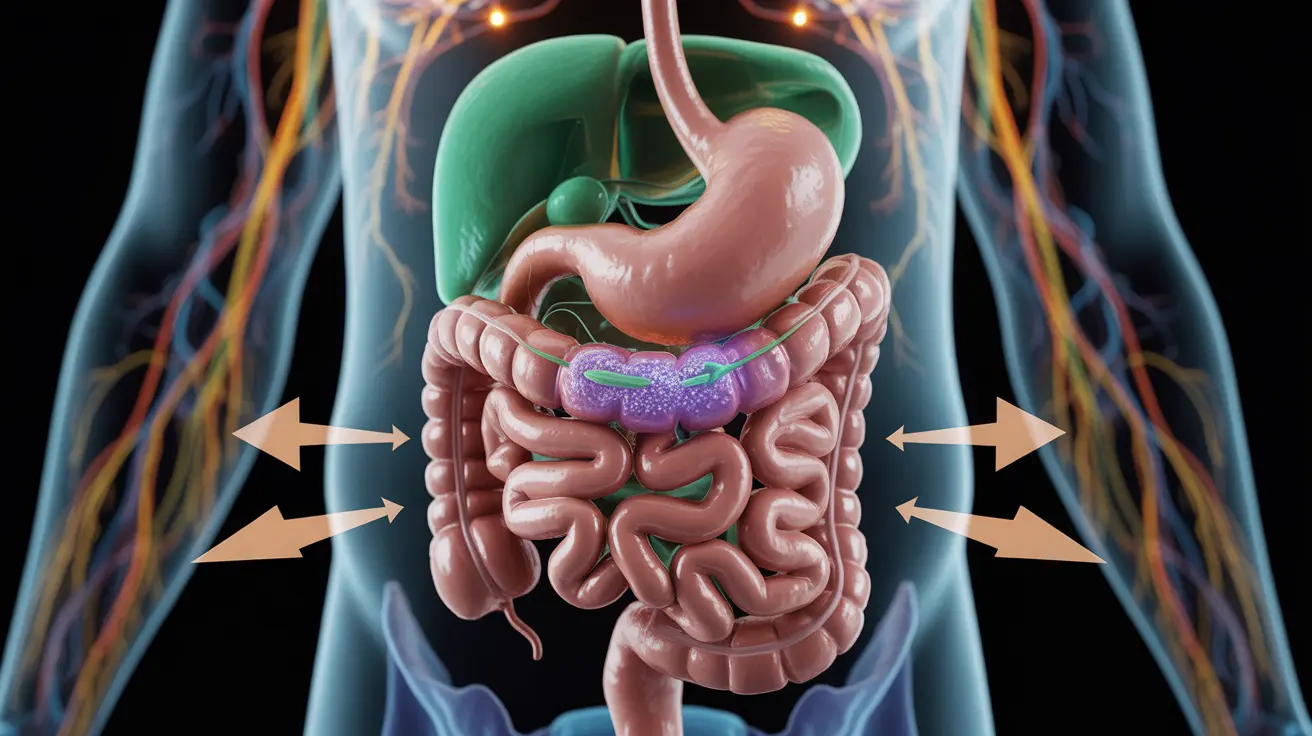The connection between our mental state and digestive health is more significant than many realize. When stress and anxiety strike, they can trigger various physical responses in our body, including unexpected changes in bowel movements. Understanding how stress can cause diarrhea is crucial for managing this uncomfortable but common occurrence.
This comprehensive guide explores the relationship between stress and diarrhea, helping you recognize the signs and providing effective management strategies for when emotional tension affects your digestive system.
The Stress-Gut Connection Explained
Our digestive system and brain maintain constant communication through what's known as the gut-brain axis. When stress levels rise, this connection can trigger various digestive responses, including increased gut motility and changes in the digestive process.
During stressful situations, the body releases stress hormones like cortisol and adrenaline. These hormones can speed up intestinal contractions, reduce water absorption in the bowels, and alter the balance of gut bacteria, potentially leading to diarrhea.
Recognizing Stress-Induced Diarrhea
Common Symptoms
Stress-related diarrhea often presents with distinct characteristics:
- Sudden onset during or after stressful events
- Loose, watery stools
- Urgent need to use the bathroom
- Cramping or abdominal discomfort
- Generally short duration (usually resolving once stress levels decrease)
How It Differs from Other Types of Diarrhea
Unlike infectious diarrhea, stress-induced cases typically don't involve fever or bloody stools. The episodes often correlate directly with stressful periods and may occur repeatedly during times of heightened anxiety or tension.
Managing Stress-Related Diarrhea
Immediate Relief Strategies
When experiencing stress-induced diarrhea, several approaches can help provide relief:
- Practice deep breathing exercises
- Stay hydrated with water and electrolyte-rich beverages
- Eat small, frequent meals of bland foods
- Avoid caffeine and fatty foods temporarily
- Try gentle physical activity like walking
Long-term Prevention
To reduce the likelihood of stress-triggered digestive issues:
- Develop regular stress management practices
- Consider mindfulness or meditation
- Maintain a consistent sleep schedule
- Exercise regularly
- Keep a food and stress diary to identify patterns
Special Considerations for IBS Sufferers
People with Irritable Bowel Syndrome (IBS) often experience more severe reactions to stress. The combination of IBS and stress can create a challenging cycle where symptoms and anxiety reinforce each other. Working with healthcare providers to develop a comprehensive management plan is especially important for these individuals.
When to Seek Medical Help
While stress-induced diarrhea is usually temporary, certain signs warrant medical attention:
- Symptoms lasting more than a few days
- Severe dehydration
- Blood in stools
- Significant weight loss
- High fever
- Severe abdominal pain
Frequently Asked Questions
- Can stress or anxiety really cause diarrhea, and how does that happen?
Yes, stress and anxiety can directly cause diarrhea through the gut-brain axis. When stressed, your body releases hormones that can speed up digestion, increase intestinal contractions, and alter gut bacteria balance, leading to diarrhea.
- What are the symptoms of stress-induced diarrhea, and how is it different from regular diarrhea?
Stress-induced diarrhea typically comes on suddenly during stressful periods, features loose stools without fever, and resolves when stress levels decrease. Unlike infectious diarrhea, it doesn't usually involve fever or bloody stools.
- What are the best ways to manage or treat diarrhea caused by stress at home?
Key management strategies include staying hydrated, eating bland foods, practicing stress-reduction techniques like deep breathing, and maintaining a regular sleep schedule. Over-the-counter anti-diarrheal medications can help if needed.
- I have IBS or a sensitive stomach—does stress make my diarrhea worse, and what can I do about it?
Yes, stress often exacerbates IBS symptoms, including diarrhea. Working with healthcare providers to develop a comprehensive management plan combining stress reduction techniques, dietary modifications, and possibly medications can help manage symptoms effectively.
- When should I see a doctor if my diarrhea might be related to stress?
Seek medical attention if diarrhea persists beyond a few days, causes severe dehydration, is accompanied by blood in stools, significant weight loss, high fever, or severe abdominal pain. Also consult a doctor if stress-related digestive issues significantly impact your quality of life.




